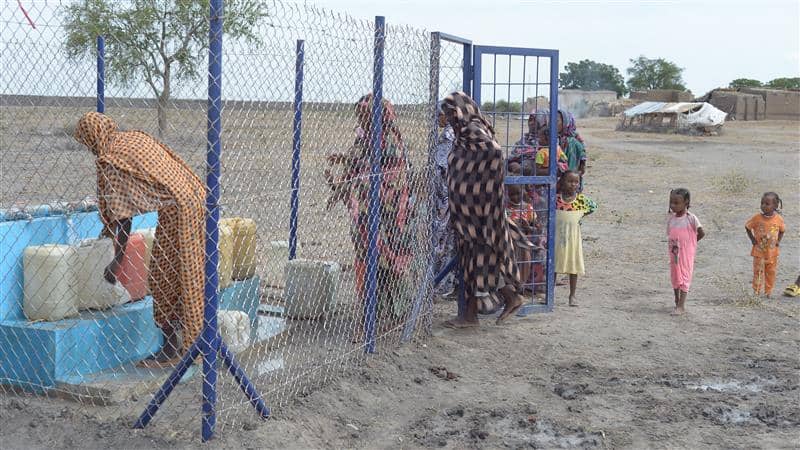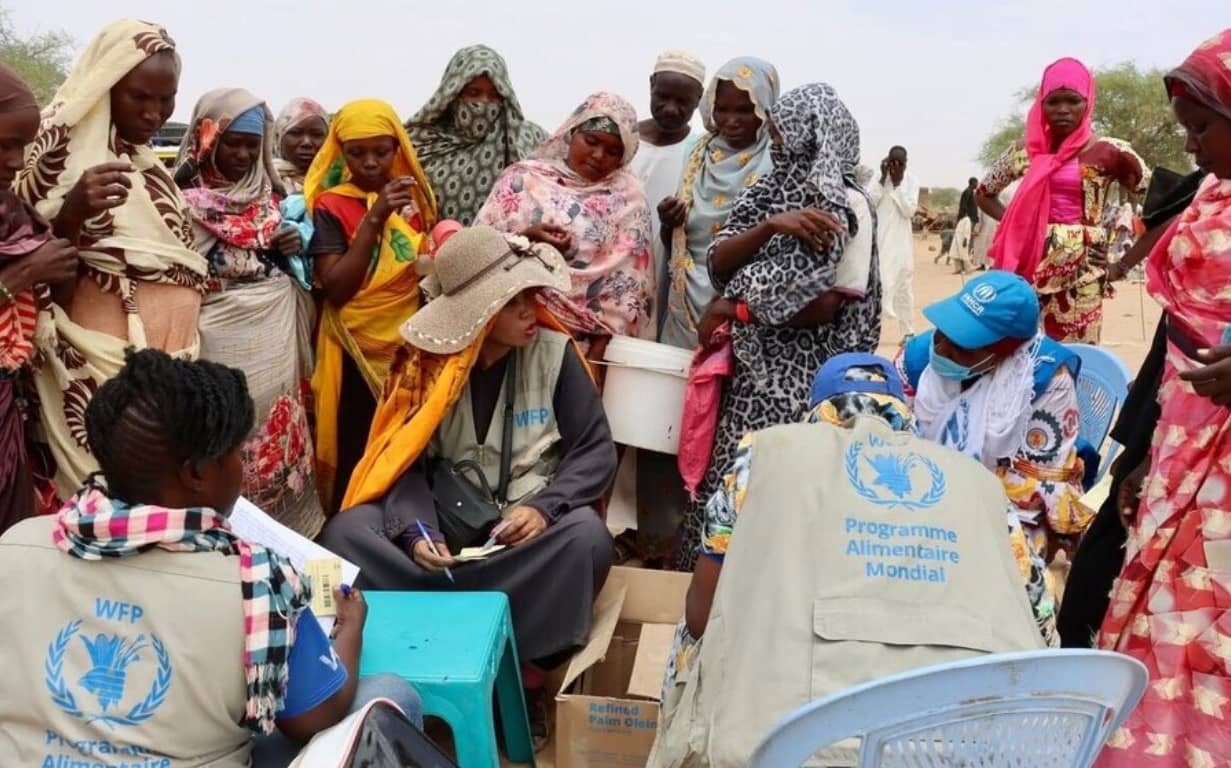YAOUNDÉ, Cameroon – After spending 12 hours in captivity, Archbishop Cornelius Fontem Esua of Bamenda says he gave his captors rosaries and copies of the Bible.
The prelate was taken to a separatist rebel camp Wednesday, on his way home from St. Therese Parish in Esu in the Momo Division of the North West Region of Cameroon. Bamenda is the capital of the region.
He had been on a pastoral visit to preach peace in a region that has been suffering violence for over two years in what has been called the Anglophone Crisis.
English speakers in Cameroon have been complaining about marginalization by the French-speaking majority, with many of them now fighting to form a separate state called Ambazonia.
During his journey, Esua encountered several roadblocks, mostly consisting of stones and sticks, and had already dismantled five of them when he encountered one in Njinikom – about 20 miles from Bamenda.
“I stood there for some time. Some boys came in and said, ‘No, you cannot go, you should go back.’ They gave me the number of a certain general [commander of separatist fighters]. They called and said, ‘Let me talk to him.’ He said, ‘No, you cannot pass, it has been blocked.’ I came down, I removed the barrier and I passed. The boys came, about 5 or 6 of them very aggressively shouting, ‘Who do you think you are.’ They mishandled my driver. ‘No, we are taking you to our camp’,” the archbishop recounted.
The separatists took the archbishop and his driver to their camp on motorbikes, but Esua said they were not mistreated.
“I stayed a night with them, they were good, they were very gentle,” he said.
The archbishop said he doesn’t regret the night spent in separatist captivity, because it also provided him with the opportunity to evangelize.
“They asked me to pray for them. I prayed for them and gave them copies of the Holy Bible and rosaries,” he said.
Esua told his captors that it was wrong for them to cause suffering for the very people they claim to be defending.
“I told them, ‘You are making people to suffer.’ I said we cannot achieve anything good with evil. Thou shall not kill, thou shall not make other people to suffer. People whom you pretend to be fighting for are suffering. I told them a lot about education. Get the schools open,” he said.
(The separatists have been enforcing a school boycott in protest of the central government’s education policies.)
“You cannot be fighting for justice, for truth and at the same time make the people for whom you are fighting suffer. You are spoiling our course,” the prelate told his captors.
A commander of the so-called ‘amba boys’ told the archbishop that he was taken because he had disobeyed their orders restricting movement.
“I told him if I have disobeyed you, I’m sorry,” Esua said. He was only released after spending over 12 hours with the separatists.
Describing his captors as “nice people,” the archbishop said they were all “young, innocent boys who have been put in a very difficult situation. These are good children who have been forced to the corner.”
“One moment, they are aggressive even to themselves. The next moment, they are saying they are sorry. Really, can you condemn young people like that?” Esua asked.
Catholic leaders in the English-speaking regions have been advocating for justice for the country’s Anglophone minority since the crisis began.
In 2017, disgruntled lawyers and teachers began protesting the use of French in courts using the Anglo-Saxon common law tradition (practiced in the English parts of the country) and in Anglophone schools, and it soon boiled over to the general public, with many Anglophones calling for outright secession. At the time, the bishops accused the central government of “the deliberate and systematic erosion of the West Cameroon cultural identity.”
Since then, the protests transformed into an insurgency which has killed an estimated 500 people and created nearly 500,000 refugees and internally displaced persons.
After his release, Esua even implied his separatist captors were engaged in a just struggle.
“In fighting for justice and freedom, we should not destroy what we are fighting to protect. If you want justice, you should start by practicing justice. If you want our lives to be protected, you should start by protecting other people’s lives. That is what I told them,” the archbishop said.
It is not the first-time clergy have been kidnapped in Cameroon by the separatists. On Nov. 23, 2018, Father Jude-Thaddeus Langeh Basebang, a Claretian missionary, Deacon Placid Muntong and a seminarian were all taken in Muyuka, in the South West Region, but later released.
On April 30, 2018, the principal of St. Bede’s College in Ashing-Kom was abducted for defying the school boycott but was released two days later.
School children have also been abducted for flouting the boycott, leading to the closure of almost all educational institutions in Cameroon’s Anglophone areas.
Crux is dedicated to smart, wired and independent reporting on the Vatican and worldwide Catholic Church. That kind of reporting doesn’t come cheap, and we need your support. You can help Crux by giving a small amount monthly, or with a onetime gift. Please remember, Crux is a for-profit organization, so contributions are not tax-deductible.

















